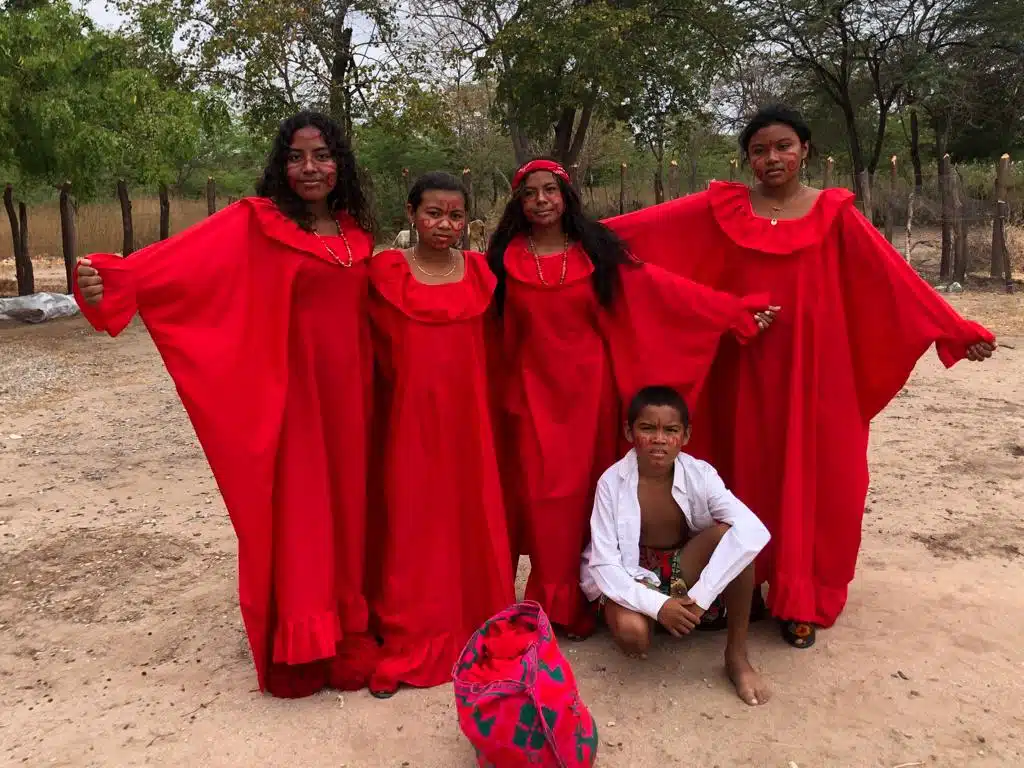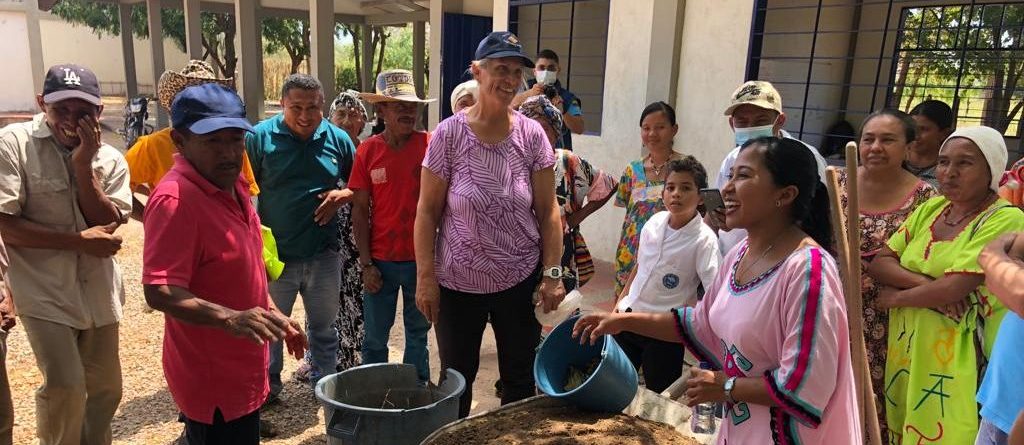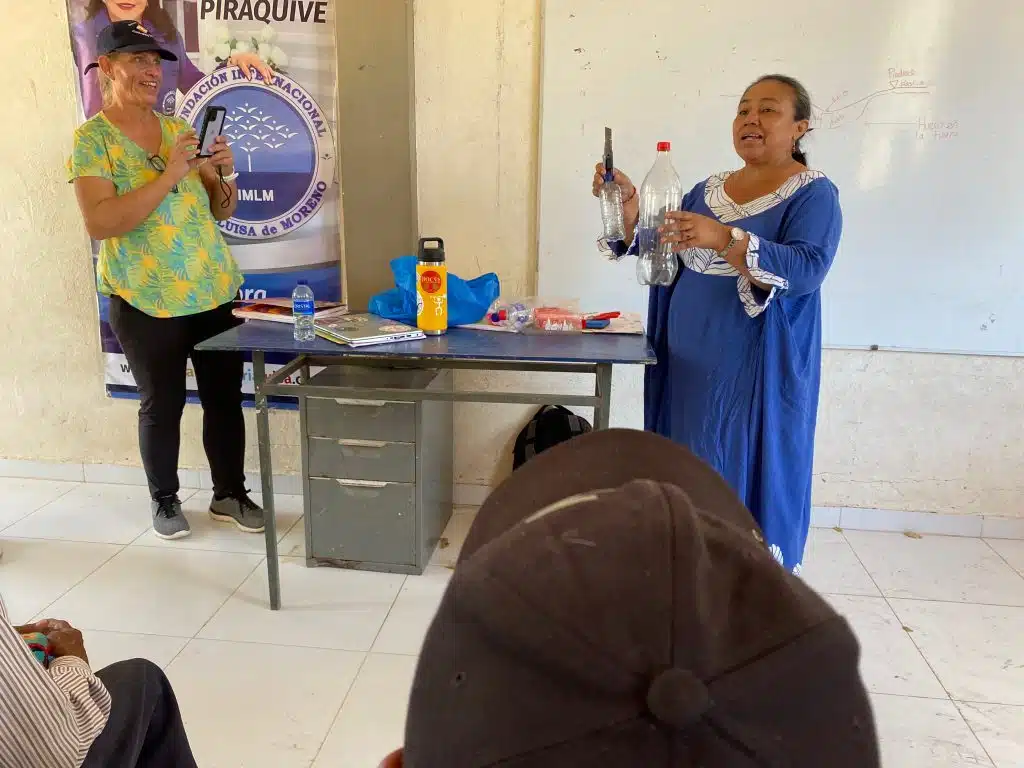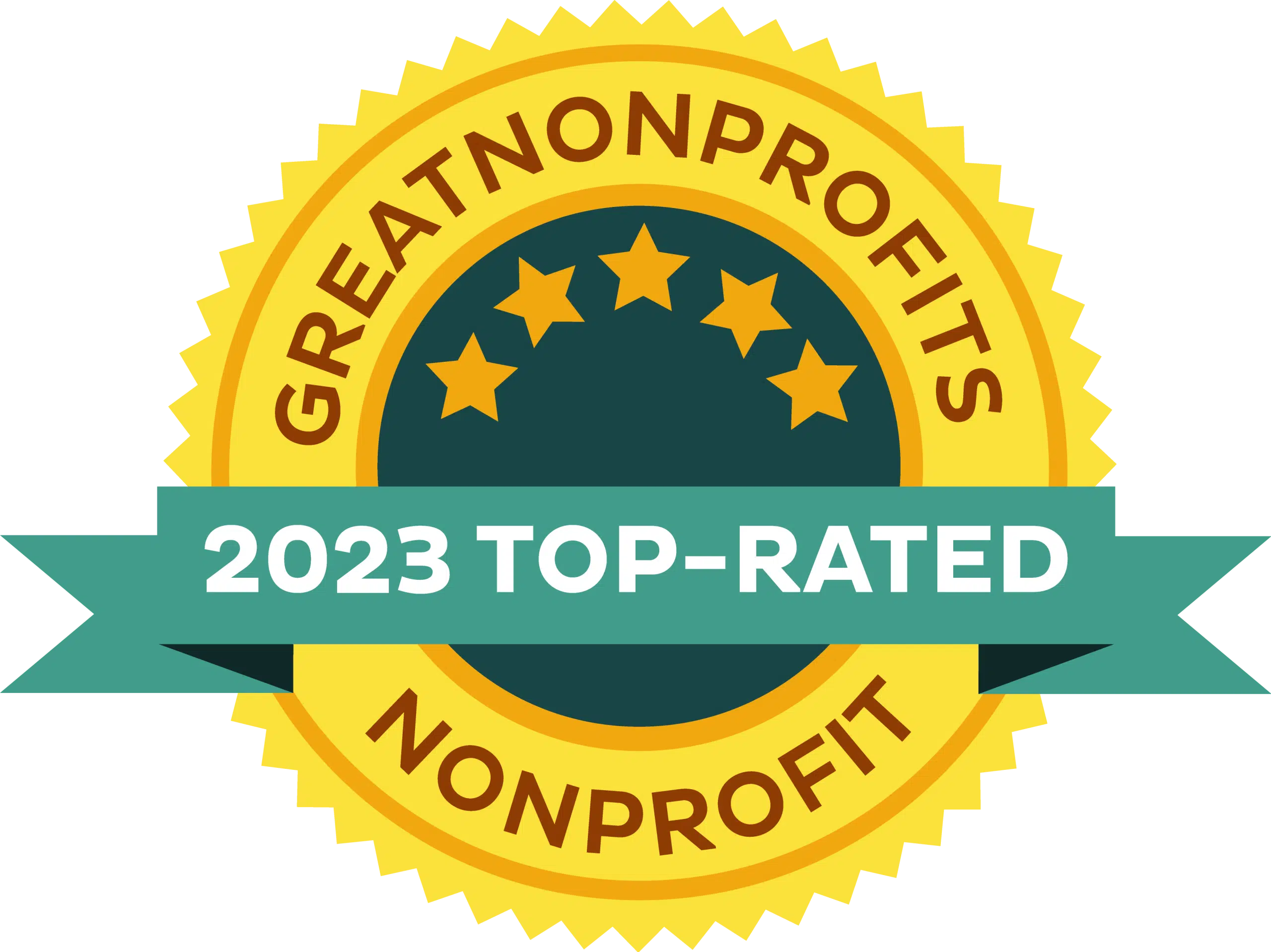Learning Water Management Techniques for Better Community Food Production
Marelvis Cotes Ramírez has been teaching at the agricultural school, Colegio Etnoeducativo Pulitchamana, for the last seven years. Built through support by the Fundación Internacional María Luisa de Moreno (FIMLM), Cote’s school serves over 200 students from five surrounding Wayuu Indigenous villages in La Guajira, one of the poorest departments in Colombia.
These five Indigenous communities face the critical and complex challenge of water scarcity and contamination. In addition to increasingly frequent droughts, many local wells and other natural water sources have trace salts and other contamination issues. Families must travel long distances to get water, making it difficult to transport and use for agricultural activities. This not only affects their economic livelihoods, but also their collective drinking water supply and community food production.
Lack of clean water exacerbates the high levels of childhood malnutrition in these villages. The Human Rights Watch reports that 77% of Indigenous people in La Guajira lack secure and permanent access to food. In 2019, the death rate of children under five from malnutrition in La Guajira was almost six times the national rate.
.
Looking for ways to address these realities, the school and FIMLM requested our John Ogonowski and Doug Bereuter Farmer-to-Farmer Program (F2F) volunteer and water quality specialist, Jan Surface, to provide trainings for teachers like Cotes on applicable water management, desalinization, and purification techniques to teach their students and families.
Once Surface arrived, the response and interest of the surrounding communities exceeded the school’s expectations. Village authorities, students, and other community members participated in the theoretical and practical training sessions. They learned and practiced purifying their local water supply through bottle distillation and bucket filters. Surface also taught practical workshops on composting that led to the establishment of two school composting piles for future use in home gardens and food production.
“We had excellent discussions, questions galore, and impassioned speeches on coming together as a community to implement these recommendations,” Surface said.
Marelvis Cotes Ramírez (right) translates a distillation demonstration by F2F volunteer Jan Surface (left), into Wayuunaiki, the Wayuu language.
Cotes volunteered to translate the workshops from Spanish to Wayuunaiki, the Wayuu language, to ensure that everyone in the community fully understood the concepts.
When asked why so many community members, in particular local leaders, were so engaged in the trainings, Cotes said, “We have been suffering in these situations for so long and we have come to a point where we’ve said, ‘no, if we don’t get training… the solution is not going to just appear.’ There was this need for us to search for new strategies. We need these experiences from other places that have faced these problems, and to see how they have been able to get out of them.”
Following Surface’s technical workshops and low-cost recommendations, the community and school plan to implement these water quality and treatment practices. Village leaders gave their support to adopt fencing, trough construction, and water treatment at their community farms to improve the water quality and expand their food production. Additionally, the communities will pool resources to build a concrete animal watering trough and fence at the school well. The Pulitchamana teachers will also incorporate the new concepts into their agricultural curriculum in the coming school session to ensure these lessons are further cemented and shared across the communities.
This is the school’s first experience with the F2F program, and it has already generated significant impact for their students and community.
“All of our expectations were met, because what we wanted was, in addition to the theory, that we could experience the practice and that it was a practice that we could replicate and make into a reality,” Cotes said.
May 15, 2023





